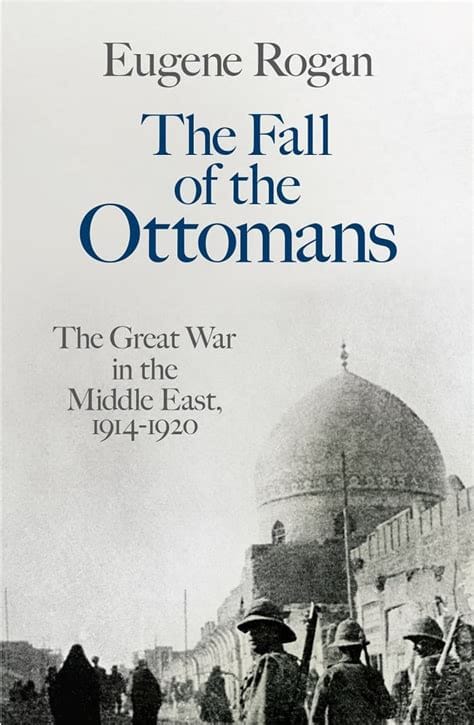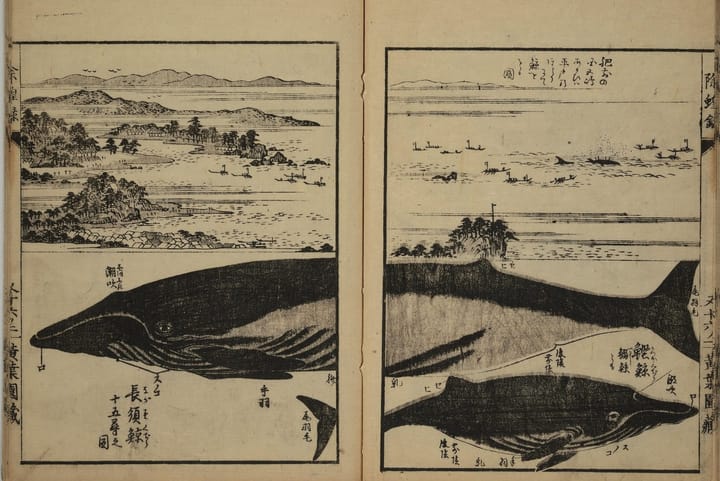week 40 / 2025: the same river twice
This week, it seems I'm flagrantly mishandling Heraclitus to make a case for horizon-scanning...

“Open your eyes / they say, it’s all full of stars…”
This week I’ve been thinking a lot about horizon scanning. Scanning is in many ways the foundation of foresight work: in order to think about where things are going, and how your organisation might respond, you need to know where things are now. I would argue that you need to know where things were, too—much as it’s hard to think usefully about futures without understanding the present, it’s hard to think usefully about the present without understanding the past.
Thing is, all this analysis takes time and attention, which is at a premium in almost every organisation and institution. Which means the question is: how to make the best use of the resources available? What follows is an attempt to “think out loud” and address that question by pushing a metaphor as far as possible—which regular readers will likely recognise as my modus operandi.
My position here is essentially Heraclitian: the universe—or, less grandly, the world that we experience—is in constant flux, but the accretion of past events and circumstances gives that flux and force a direction and shape which me might usefully compare to a powerful river. Heraclitus is probably best known for the aphorism that one cannot step in the same river twice. For anyone outside the realms of pure philosophy, that saying is probably best approached as a sort of koan rather than a statement of ontological fact: the river—or the world for which the river is a metaphor—is always changing, though it may seem fairly consistent to a casual observer. The point of horizon scanning, then, is to become something more than a casual observer.
We depart from Heraclitus when we note that horizon scanning is a means to an end, rather than an attempt to understand (or even just appreciate) the universe in all its changeable complexity. An organisation has goals, and foresight is usually directed toward making those goals more achievable and informing action.
In an ideal situation, and returning to our riverine metaphor, the organisation would have the resources to observe the river in its entirety, all the way from the springs or glaciers that are its source, down to the estuary where it meets the sea. However, readers who’ve done even a little bit of physical geography will realise that even this isn’t the whole story. A river is just one channel of the planetary hydrological cycle, which means that you also need to think about the oceans, the glaciers and the aquifers, the tributary rivers upstream and the flood-plains downstream, the clouds and the weather and the atmosphere… in other words, to understand the river, you have to have some understanding of the planet which is the river’s context, even if that understanding is only shallow.
Of course, our hypothetical organisation likely doesn’t have the resources to keep a team of metaphorical physical geographers on the payroll, or even just one. More realistically, they might be able to send someone out once per season to observe the particular part of the river that is most relevant to their goals; that person might have had some physical geography training, but—given they likely have other duties beyond river observation—they might not. As such, the organisational understanding of the river is going to be highly situational.
Now, I am a big fan of situated understandings, thanks once again to Donna Haraway. In her justly celebrated essay, Haraway makes the point that the systemic knowledge claimed by science is not and can never be “objective”, and the illusion of objectivity contributes to the illusion of control that comes with the scientific worldview; situated knowledges are therefore a corrective to what she labelled the “god trick”. But they are a corrective to the Western scientific paradigm, rather than a replacement for it. To return to my favoured terminology, situated knowledges concretise the abstractions of science; indeed, what we think of as “science” was formed by previously concrete and situated knowledges being brought together and systematised in a process of reduction and abstraction. From a history-of-science perspective, we’re now in a phase where that process is being run in the opposite direction—but you have to have the abstract understanding from which to do the work of concretisation.
Returning to our imaginary organisation, then, and to its equally imaginary person on 15%FTE river-observation duties, they’re likely stuck at the concrete end of riverine knowledge: they might have an idea of how the flow and breadth of the river changes with the seasons at a particular location, what sort of flora and fauna it supports there, where and when it’s safe to cross. If the river is seen primarily as a source of opportunity, this concrete knowledge is likely enough to set up some basic extraction and exploitation systems, and to gain the slack required to respond tactically to minor deviations from established patterns.
And, let’s be honest: in times of stability, that’s probably enough to keep things running. The river changes, yes, but it does so within a seemingly established range of variation. But when things start to go awry in the wider ecosystem—when the water cycle is disrupted by increasing temperatures, for example, or by pollution upstream, or by the introduction of dams or excessive extraction for industrial use—then you’re going to start seeing changes that fall outside of the patterns you’ve established. And that’s the point where your strategy falls apart, and you’re left with nothing but tactics.
Having belaboured the metaphor, I’m going to assume that the implicit conclusion is obvious: in order to survive periods of systemic change, the organisation needs some sort of broader understanding of its particular river as a system, and also of rivers in general as parts of a greater system. The shamelessly self-aggrandising follow-on from that conclusion is that the organisation should look at putting someone with that systemic knowledge on the payroll, or at least hiring in that expertise; this, in other words, is what foresight practitioners are for! (So why not hire one now, hmm?)
Of course, this conclusion does not obviate the resource constraints; even if you do employ or hire in that systemic perspective, you’re going to have to make some decisions about the scale at which you want them to focus, and whereabouts in the spectrum between concrete and abstract knowledge you want them to focus.
And this, I would argue, is the real challenge. I wouldn’t go so far as to say that anyone can be a capable horizon scanner, but I would say that for those with an inclination to generalism—such as myself—maintaining a big-picture awareness of the metaphorical hydrological cycle is the easy bit, though it still takes time. Those hours of undirected reading I clock up in the ‘ticked off’ section of these weeknotes? That’s what they’re all about—and five hours a week (at minimum) for fifteen years gives one that longitudinal perspective I mentioned at the top of this piece.
Working out where to focus and how to filter for a particular organisation is the tough bit, and it requires a solid understanding of what the organisation is trying to do. Having the knowledge is one thing, but making sense of it is entirely another. It’s an act of interpretation, and interpretation is highly contextual… which brings us back to the banks of our metaphorical river.
The work of foresight is the movement between the abstract and the concrete—and never just in one direction, but rather always in an oscillation between those two poles. Organisations would be well advised to engage some generalist expertise in troubled times, but if we want to be really useful, it’s important for those of us who do such work to come down into the organisation’s concrete concerns.
reading
The Fall of the Ottomans by Eugene Rogan is an account of the first world war that focusses on the Ottoman empire’s experience thereof. It’s not exactly what most people would think of as bedtime reading material—the chapter on the Dardanelles campaign, in particular, is probably to blame for some rather troubled dreamscapes.

Nonetheless, it is painting in what I recognise as a colossal gap in my own sense of that historical period. To go by what I was taught at school about both world wars, they were basically about Britain clobbering “the Germans” twice; I was dimly aware of the involvement of the Ottoman empire in the first conflict, but not at all of the scale of that involvement. Nor had a I realised the extent to which the current geopolitical set-up of the Middle East, and the relationships of various Muslim sects to one another and the rest of the world, were shaped by decisions and deals made over a century ago. (This probably explains why the historical dimension of foresight is much on my mind right now.)
It’s something of an underdog story, though it does not portray the Ottoman empire in a particularly sympathetic light. Mostly it serves as a reminder of the horror and stupidity of war in general, and of the flawed humanity that makes it the curse of our species. Plainly written, thoughtfully structured, it’s a great introduction to an overlooked side of history.
But yeah, maybe don’t read it before lights-out.
a clipping
This Will Davies essay at Teh Graun is billed as being about the current presidential administration of the United States, but really it’s about how we know things, particularly in troubled times.
Arendt argued that there was a second human faculty, in addition to judgment, that allowed understanding to progress to a truer grasp of meaning: imagination. Imagination, for Arendt, is the uniquely human capacity to grasp truth via speculative leaps, drawing on empathy and creativity in the process, as opposed to scientific methods. Politics requires us to navigate situations which are incomparable and immeasurable, because they are genuinely new. This in turn requires something closer to aesthetic judgment than to scientific judgment.
“Imagination alone,” Arendt wrote, “enables us to see things in their proper perspective.” The challenge Arendt poses to us is to think of truth and meaning not from the perspective of the economist, financial analyst, data scientist or sociologist, but of the historian, the kind who sees human events as a series of breaks, anomalies and initiations.
ticked off
- Fifteen hours of admyn. (A lot of adjustment of organisational infrastructure to better accommodate the new working patterns associated with the studio; also the usual virtual paperwork, correspondence, and pitching for gigs.)
- Ten hours on PROJECT FLATPACK. (Research, interviews, sensemaking.)
- Eight hours of kinmaking. (See below.)
- Four hours of art practice. (Trying to find a rhythm in the studio, but—as noted above—some patterns need adjusting before the tempo settles down.)
- Two hours on PROJECT PORTON. (Just bits and bobs as this one comes to an end.)
- Ten hours of undirected writing and reading, which you now understand to be (at least in part) a horizon-scanning discipline.
A low count of hours this week, but that’s deliberate; after the craziness of September, I needed a bit of recovery time, and I feel better for it.
kinmaking
The seven hours mentioned above were spent at a conference-seminar-networking thing around the theme of “nature-based solutions”, arranged by various folk at SLU but featuring also people from Malmö’s municipal climate-preparedness bodies. Saw some old friends and, I think, made some new ones. I’ve been saying for a while that adaptation is the only game in town when it comes to climate stuff, at least for the forseeable future; the big decisions happen upstream of almost everyone, and it’s pretty obvious no one up there feels like doing a damned thing while the status quo keeps lining their pockets. But there’s agency further down the stack—more than we’re led to think, in fact—and plenty of things we can be doing to make difference on our own doorsteps.
That’s to say any of it will be easy, mind you! But nothing worth doing ever is.
Right, that’s all for now; I need to go help out with some maintenance work in my apartment block. I hope all’s well with you, wherever you may be.
This has been the Worldbuilding Agency weeknotes for Week 40 of 2025. Thanks for reading! If you've enjoyed them, it's free to subscribe. If you are already subscribed, please send to a friend who you think might also like it!





Comments ()